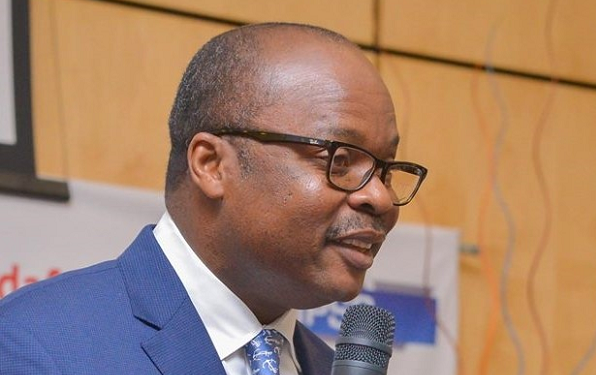Journalists for Business Advocacy calls on BoG to cut policy rate
Already, the exchange rate has fallen back by a fifth from its peak of GHc15 to US$ 1 and has achieved some degree of short term equilibrium, and so is no longer feeding into upward inflationary pressures anymore.
- Advertisement -
The Journalists for Business Advocacy (JBA) has called on the Bank of Ghana to consider reducing its benchmark policy rate from the current 29.50 per cent to 27 per cent in order to spur economic growth and boost employment.
This is necessary to prevent the country from falling back into recession after escaping the economic challenges caused by the outbreak of the COVID-19 pandemic that lasted for almost a year.
- Advertisement -
The reduction in the interest rate is necessary because consumer inflation has peaked while economic growth indications as shown by the Index of Economic Activity suggest that the economy is in danger of falling back into a recession.
- Advertisement -
Economic index
The BoG’s Composite Index of Economic Activity fell by 7.6 per cent recently and even though it measures changes in the level of economic activity as different from the Ghana Statistical Service’s computations of changes in the value of the economy, because the former underpins the latter, they both tend to move in tandem.
A statement signed by the President of JBA, Mr Suleiman Mustapha, said considering the current circumstances concerning both inflation and economic growth, the time had come for the central bank to cut the benchmark Monetary Policy Rate (MPR) in order to push the interest rate regime downwards.
JBA is concerned that the fiscal challenges leading to the public debt restructuring has caused banks to shift from lending to government towards private businesses.
The combination of elevated credit risk accompanying that shift coupled with the gradual withdrawal of the liquidity injections made to keep economic activity up during the COVID-19 era are threatening credit driven expansion of the economy even as monetary tightening is also curtailing financing of the private sector.
Forex
The statement said the desire of the BoG to curb credit driven demand for forex through interest rates could easily feed back into upward pressure on inflation through increased cost of financing businesses due to high cost of credit.
- Advertisement -
Already, the exchange rate has fallen back by a fifth from its peak of GHc15 to US$ 1 and has achieved some degree of short term equilibrium, and so is no longer feeding into upward inflationary pressures anymore.
Indeed, the primary cause of inflation over the past few months has been increases in utility rates and this is reflecting in the differential between headline consumer inflation and core inflation which excludes energy and utilities in the computations.
With pass through effects of utility increases more or less complete and petroleum prices stabilised well below the peak they reached during 2022, headline inflation will fall, driven lower by base drift effects in the computation of inflation.
The Bank of Ghana’, which is an inflation targeting bank has price stability as its primary function but in actual fact, the quantitative model it uses for guiding MPC decisions gives economic growth considerations the same weight as price stability.
The most recent CIEA readings are coming just ahead of entry into an IMF programme that will inevitably come with growth curtailing demand management policies aimed at restoring macroeconomic stability, and therefore have the potential to worsen the situation with regard to growth. The last thing Ghana’s economy needs now is a recession.
Crucial
JBA believes that absolute value of the MPR is no longer as important as it used to be; it is the direction in which it is headed that remains crucial.
Since the recent financial sector reforms, commercial banks no longer rely on the BoG as lender of last resort preferring to support each other to smooth over their short term liquidity needs through interbank lending.
The interbank rate is lower than the MPR at which the BoG lends to commercial banks in its role as lender of last resort.
This negates the need for the MPR to be kept so high. It is instructive that the MPR is currently higher than short term treasury bill rates too.
Consequently JBA recommends that the MPR be reduced a notch to avert both cost push inflation and even more importantly, a full blown economic recession.
- Advertisement -


